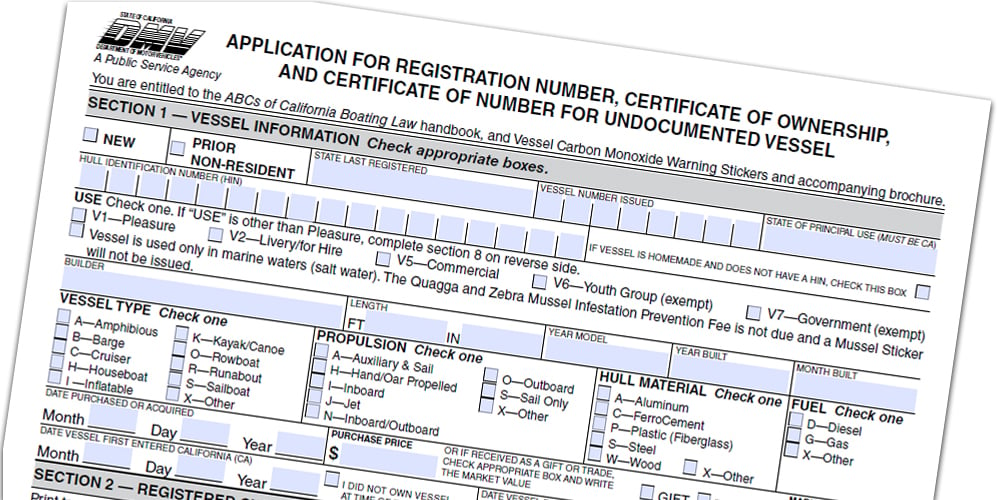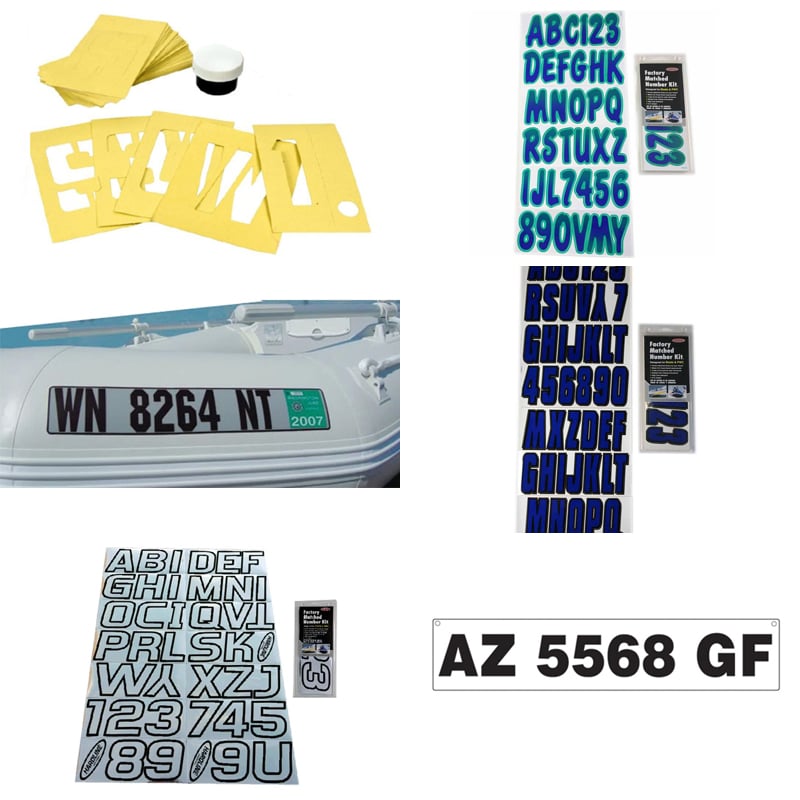
Boating is a gateway to adventure, relaxation, and enjoyment, but before you set out on the water, there’s an essential task you can’t overlook: boat registration. Whether you're a seasoned sailor or a first-time boat owner, understanding the rules for registering your vessel at the state and federal levels is crucial. Not only does registration ensure legal compliance, but it also supports safe waterways and provides a means of tracking ownership in emergencies. Let’s explore all aspects of boat registration and documentation to keep your boating experience worry-free.
Why Must Boats Be Registered?
Boat registration is a legal requirement in the United States, designed to maintain order and safety on the water. Just as cars require license plates, boats need registration to identify their owners and ensure compliance with local and federal laws. Registration also helps fund programs for maintaining waterways, boating safety initiatives, and enforcement efforts. Moreover, registering your boat plays a role in public safety. In emergencies, such as accidents or theft, registration allows authorities to identify and track your vessel. It’s an essential part of responsible boat ownership.
State-Level Boat Registration
Are the Requirements the Same in All States?
No, state registration requirements vary significantly. Most states require motorized boats, sailboats with auxiliary engines, and personal watercraft (like Jet Skis) to be registered. However, non-motorized vessels, such as kayaks and canoes, may be exempt in certain states. For instance, Ohio requires that all recreational boats, including non-motorized kayaks and canoes, be registered. However, in Delaware, non-motorized watercraft like kayaks and canoes are exempt from registration.
Must All Boats Be Registered?
Not all boats require registration. Generally, if your vessel has a motor, it must be registered. However, exemptions exist for:
- Non-motorized vessels like paddleboards, kayaks, and rowboats in many states.
- Lifeboats used exclusively for emergency purposes.
What Does It Cost to Register a Boat?
The cost to register a boat varies widely by state. For instance:
- Florida: $5.50 to $189.75, depending on vessel size.
- Texas: $32 to $150, based on length.
These fees help fund boating programs and enforcement. Costs also differ based on whether the boat is used recreationally or commercially.
How Is the Cost Calculated?
States use different methods to calculate registration fees. Common factors include:
- Length of the boat: New York charges based on vessel size, with rates increasing for larger boats.
- Flat fees: Wisconsin has a flat registration fee for all motorized boats under 16 feet.
How Often Must a Boat's Registration Be Renewed?
Renewal periods vary by state, typically ranging from 1 to 3 years:
- Florida: Annual renewal.
- Ohio: Every 3 years.
Do All States Charge the Same for Renewal?
No, renewal fees also vary. For example:
- Arizona: $20 for small boats.
- Massachusetts: Up to $75 for larger vessels.
What Are the Steps to Register a Boat?
While the exact process depends on the state, most involve these steps:
- Gather required documents, such as proof of ownership, a bill of sale, or a prior registration.
- Complete the application form provided by your state’s DMV or DNR.
- Pay the applicable fees.
- Display the registration number and validation stickers on your boat.
Can Dealers Register Boats for Purchasers?
In many states, boat dealers can handle registration paperwork on behalf of the buyer. For example, in Florida and Texas, dealers often assist new boat owners by completing the necessary forms and submitting them to the state.
Who Enforces Boat Registration?
Boat registration laws are enforced by:
- State agencies: Marine patrol or state police often conduct inspections.
- Local authorities: Harbor masters and municipal police enforce rules in local waterways.
- U.S. Coast Guard: Enforces federal regulations and may inspect boats in federal waters.
What Is the Penalty for Operating an Unregistered Boat?
Penalties vary but can include:
- Fines: $250 in California for operating an unregistered vessel.
- Impoundment: In severe cases, authorities may impound the boat.
- Restrictions: Operators may be barred from using certain waterways until compliance is achieved.
 West Marine offers a varied selection registration letter and number kits to satisfy USCG regulations. Shop all letter and number kits>
West Marine offers a varied selection registration letter and number kits to satisfy USCG regulations. Shop all letter and number kits>Federal Boat Documentation
What Does It Mean to "Document" a Vessel?
Federal documentation is a national registration process handled by the U.S. Coast Guard (USCG). It provides proof of nationality, allowing vessels to travel internationally and engage in certain commercial activities. Documentation also facilitates financing by serving as collateral for boat loans.
What Does It Cost to Document a Vessel?
- Initial application fee: $133 (as of 2025).
- Annual renewal fee: $26.
Can a Person Document Their Boat Instead of Registering It with the State?
Yes, federally documented vessels are typically exempt from state registration. However, some states require documented boats to display a state-issued decal to confirm compliance with local laws.
What Types of Boats Can Be Documented?
Federal documentation is available for vessels:
- Used for commercial purposes, such as fishing or passenger transport.
- Over 5 net tons (approximately 25 feet or larger) for recreational use.
Examples include commercial fishing boats, luxury yachts, and charter vessels.
What Percentage of Boaters Choose Documentation?
While exact percentages vary, documentation is most common among owners of large recreational boats and commercial vessels that travel internationally or between states.
What Types of Boats Benefit Most from Documentation?
- Large recreational boats: Yachts that travel internationally benefit from recognition in foreign ports.
- Commercial vessels: Fishing boats or ferries that require federal compliance for operations.
What Are the Steps to Documenting a Vessel?
- Complete the USCG application form (CG-1258).
- Provide proof of ownership (e.g., bill of sale or builder’s certificate).
- Submit tonnage certification if required.
- Pay the documentation fee.
- Receive the Certificate of Documentation, valid for one year.
State vs. Federal Requirements
Understanding whether state registration or federal documentation is right for your boat depends on its size, usage, and where you plan to operate. For smaller, recreational boats used in state waters, state registration is usually sufficient. For larger vessels or those involved in commercial activities, federal documentation may be more beneficial.
Practical Tips for Boaters
- Research Requirements: Check your state’s specific laws to avoid unnecessary fines or penalties.
- Keep Proof Onboard: Always carry registration or documentation papers while boating.
- Renew on Time: Set reminders for renewal deadlines to stay compliant.
By following these guidelines, you’ll not only meet legal requirements but also enjoy peace of mind while exploring the water. Safe and happy boating!